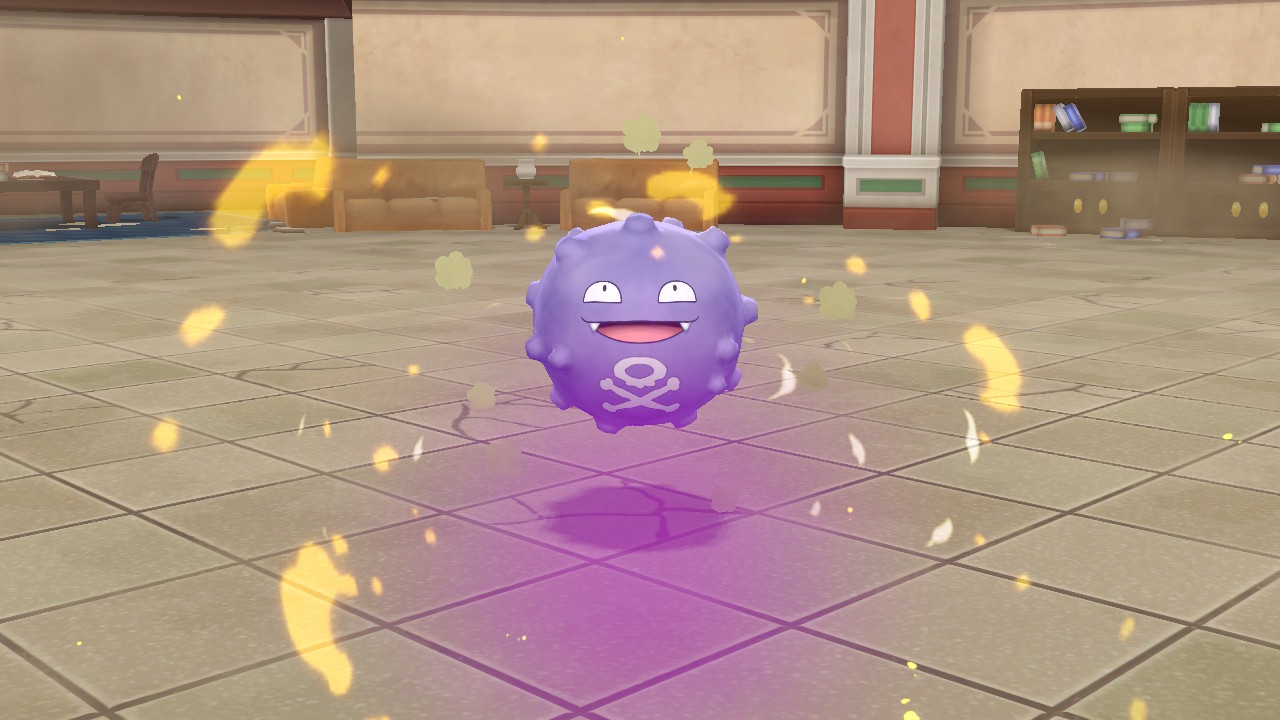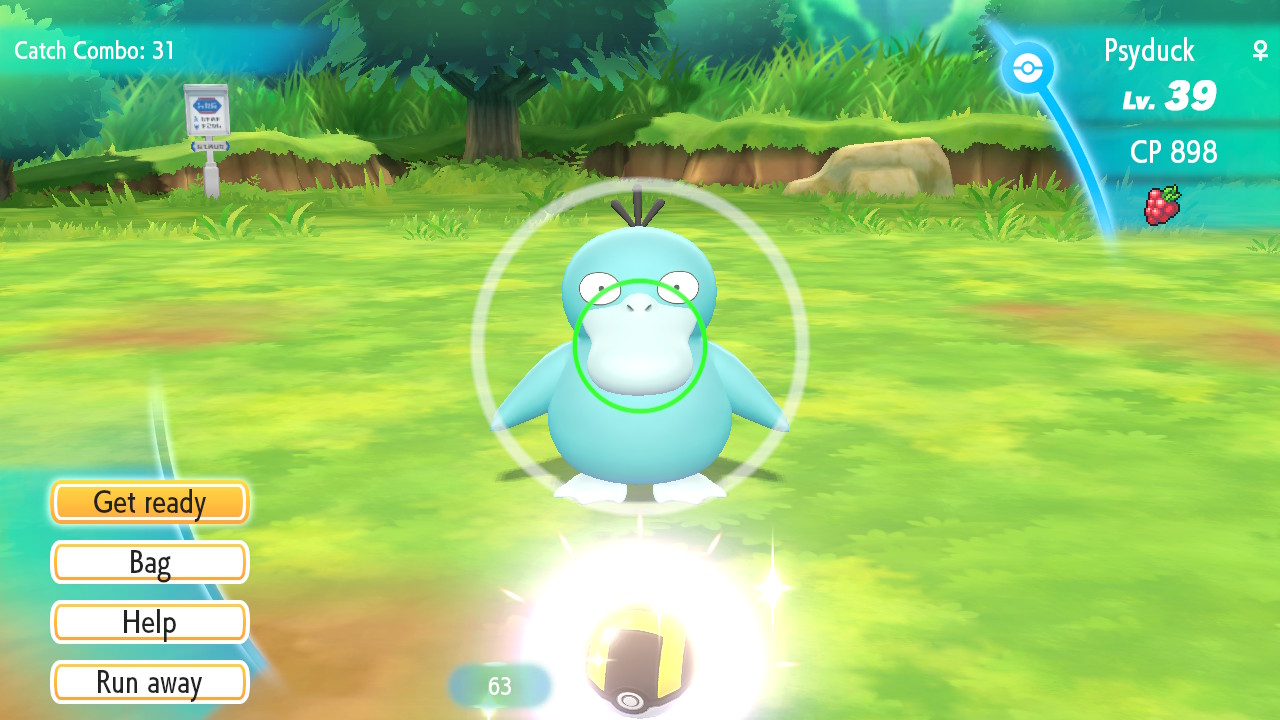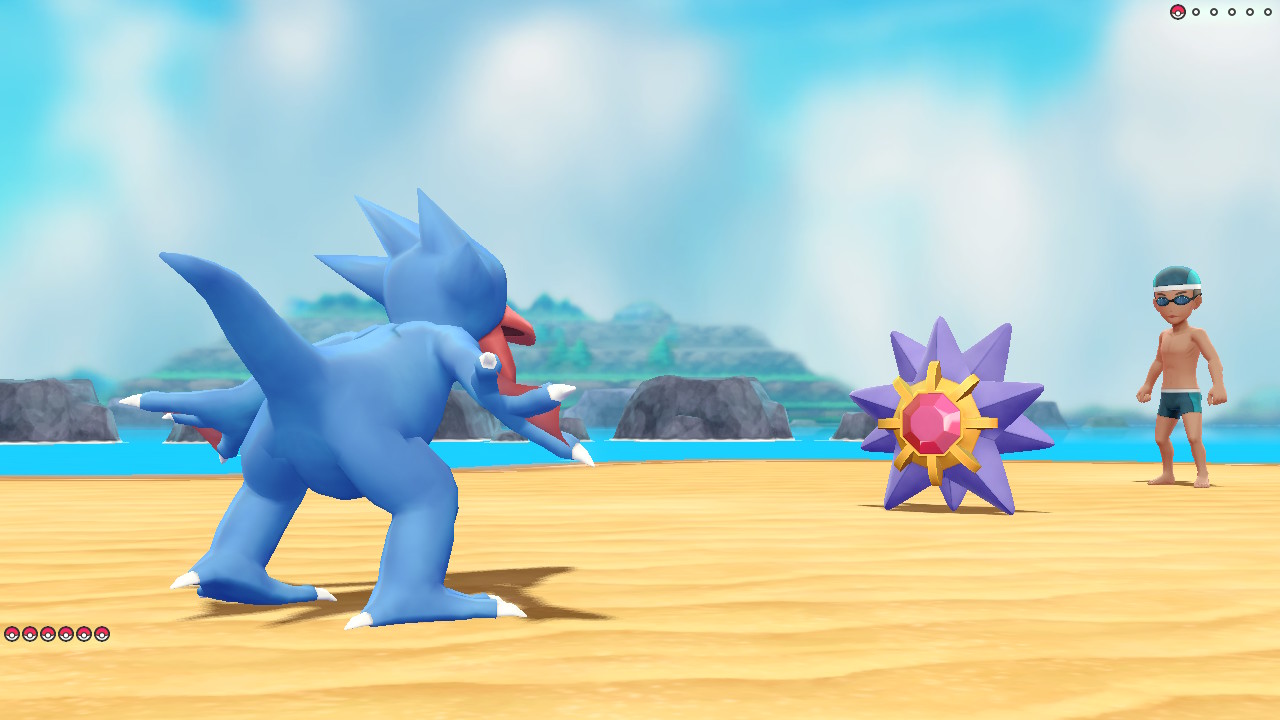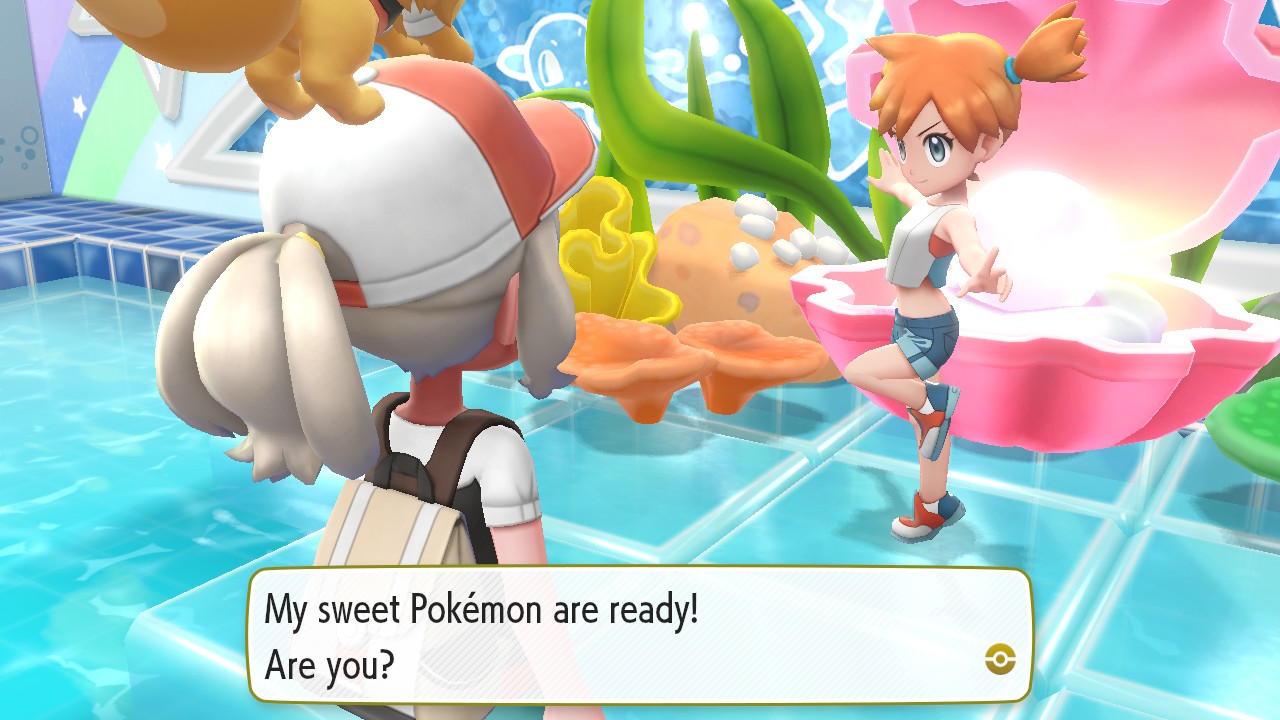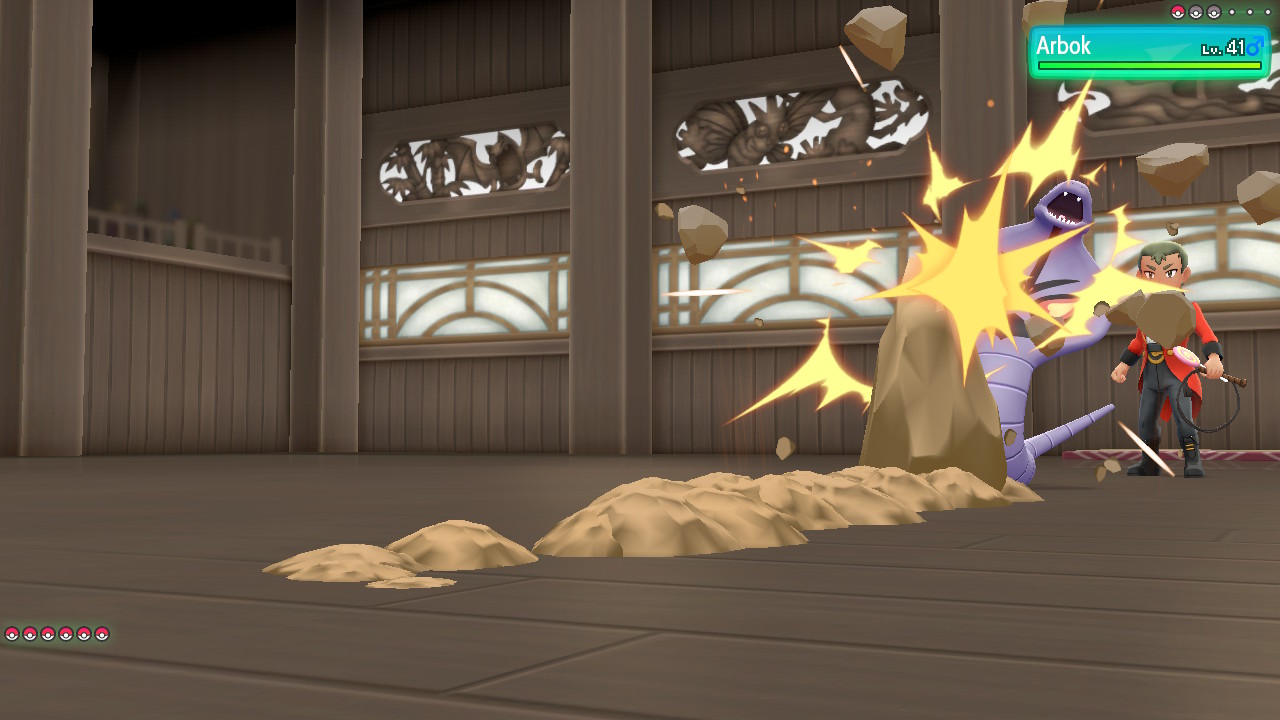Team Rocket is blasting off again!
While I’ve been a longtime fan of the Pokemon craze, including that of its mobile counterpart; Pokemon Go, It was Pokemon Yellow that consumed much of my youth. And so it is fitting that Pokemon Let’s Go! Pikachu and Eevee is a built for the Nintendo Switch version of that very game, albeit with a few significant changes.
While my time with Let’s Go! is via the Eevee version of the game, there are a few differences that may sway you to one version over the other. Each version, much like that of the main series games, features a few Pokemon that are exclusive to each release, ensuring that you get the most out of the trade features built into the game. Pikachu will see the likes of Sandshrew, Sandslash, Grimer, Muk, Oddish, Gloom, Vileplume, Mankey, Primeape, Scyther, and Growlithe, whereas, Eevee will be host to Vulpix, Ninetales, Ekans, Arbok, Meowth, Bellsprout, Weepinbell, Victreebel, Pinsir, Koffing, and Weezing, plus each with their own sets of Alola forms.
Apart from Eevee or Pikachu being your right hand Pokemon, refusing to stay within their own Pokeball, you can also gift them special attacks that are exclusive to that specific Pokemon. Given that Pikachu has a wide assortment of electrical attacks, and the fact that your Eevee is blocked from evolving to one of its many forms, Eevee is granted the ability to learn far more of these new moves. Pikachu can learn Splishy Splash, Pika Papow, Floaty Fall, and Zippy Zap, while Eevee can learn Bouncy Bubble, Buzzy Buzz, Sizzly Slide, Baddy Bad, Veevee Volley, Sappy Seed, Glitzy Glow, Sparkly Swirl, and Freezy Frost, all of which are moves brand new to the series and complete with names that sound more like a toddler’s first words. Bouncy Bubble, for example, deals out some insane damage while also healing your Eevee back for some decent health, making it one of the best moves my Eevee is currently rocking.
Let’s Go! Pikachu and Eevee does change up some aspects to the story told in Pokemon Yellow such as changing who your rival is and a few dialogue moments here and there, at least from what I remember of my time way back when. Rocket Game Corner has seen a change as well, converting all the gambling machines into arcade cabinets and thus changing how you earn your Porygon. Pokemon can no longer learn HM’s like Fly, Surf, Flash, Cut, and Strength, and are instead abilities that your partner Pokemon; Pikachu or Eevee, can learn. Other changes include the swapping of Safari Zone to Pokemon Park, the inability of holding items like the Everstone, the ability to ride certain Pokemon instead of using a bike, and even the removal of the Pokemon PC. You can even have an additional Pokemon follow you and your buddy around such as having Goldduck running alongside you or riding around on the stomach of Snorlax. The biggest change; however, comes in the form of how you will encounter and catch each of the 153 Pokemon you’ll be able to add to your collection.
As was the case with Pokemon Sun and Moon, you can customize your male or female trainer with a variety of outfits to change up their style from time to time. What is rather fun about all the wardrobe options you have available to you is that Eevee and Pikachu can get in on the fashion show with outfits and items tailored to fit them as well. You can also play with both Pokemon by petting them or using your fingers to tussle up their hair and give them mohawks or afro’s. Seriously, Eevee with an afro is amazing.
Since its release, Pokemon Go has been a dominating force in the mobile market. While sure, it has seen somewhat of a decline, the mobile app is still going strong and is the biggest audience seen of a single Pokemon release. Using that logic, it only makes sense to adapt a main series game towards that audience while still pulling on the nostalgia strings of those of us who have played each and every version since Red and Blue. Let’s Go! adapts the throwing concept of Pokemon Go and combines with it the encounter aspects of running into Pokemon on the field instead of through a series of random battles. While many “die hard” fans are upset at this, it actually works extremely well and I have to say, I prefer it.
In the previous main series games, you would encounter Pokemon at various moments of running through tall grass or exploring the dark reaches of a neighboring cavern. These battles would be entirely random, and while certain Pokemon were known to frequent specific locations, what you encountered was never really up to you. Battles would take place and you would need to weaken that Pokemon to a certain degree to increase your chances of that Pokeball locking shut after a quick toss. While some of these battles still exist in Let’s Go!, the majority of your catches are going to be battle free. First, encounters are entirely based on what you want. If you run across an Arbok or a Squirtle, you merely need to run into them and you are then given the chance to catch them. If you chain a single type of Pokemon, then your experience earnings and rewards increase and you will also increase your chances of coming across a shiny Pokemon, but more on that later.
Catching Pokemon is very similar to that of Pokemon Go in the fact that you can use berries to change certain conditions on the catch and that you simply throw a Pokeball at the Pokemon and hope it claps shut. While this is a simplistic change to the series, and one I tend to prefer, it also comes with a lot of frustration when you end up tossing 10 Pokeballs at a low level Ponyta only to have it run. While I do prefer this method to what’s come before, it does have some drawbacks that can cause you to shake your head in disbelief. Why I prefer this method is because in the main series games, battles were random, and should you accidentally defeat the Pokemon you were trying to catch, it could take a fairly long time to even stumble upon them again. Here, if you fail on the catch, you can easily find another of that type by simply looking at what spawns around you. An interesting note is that shiny Pokemon appear shiny on the field, so it’s easy enough to find them should they spawn.
While Shiny Pokemon were incredibly rare in the main series games, they are far easier to encounter in Let’s Go! To increase the odds of running into a color variant of your favorite Pokemon, you merely have to start capture chaining a single type of Pokemon. When I caught my shiny Psyduck, it was after 31 catches of every Psyduck I could find. Had I caught one of the many Ponyta’s that were running around me, then I would have broke my streak and decreased the chances of finding another shiny. Any chains past 31 don’t increase the odds, but they do increase your rewards, just be careful as Pokemon running away from you can break your streak. While shiny Pokemon don’t have better stats, they are a fascinating obsession that has taken over the Sunday afternoons of many of Pokemon Go’s top tier Youtubers.
Let’s Go! Pikachu and Eevee does come with a small amount of controversy as the game forces motion controls in how you’ll throw the Pokeball, preventing those with limited motor function and basic movement abilities from being able to fully enjoy the title. For a company that is normally known for accessibility, this is a very odd decision on Nintendo’s part. As it stands, the easiest way to enjoy the game is in handheld mode as you can use the analog sticks in an effort to throw the ball accurately or move and tilt your Switch around should that interest you as well. In docked mode, you are limited to either using a single Joycon and motioning the act of “throwing” the ball, or the Pokeball Plus peripheral that also comes with a Mew to add to your collection.
The Pokeball Plus is certainly an interesting peripheral to use for the game as it has an analog stick and a single button. The texture given to the ball gives you a much needed grip to prevent it from moving around too much in your hand and thus losing your positioning on the button. Certain actions in the game require you to either press the button, move the analog stick, or press the stick in to select certain features, while shaking the ball itself will perform others. You can place a Pokemon inside the ball to take with you and allow it to earn experience as you simply walk around. The little Pokeball can also be used in conjunction with Pokemon Go as a way to automatically spin stops and catch Pokemon that are nearby to you. As a device for Let’s Go!, it certainly has its issues. While you can perform a full tossing motion or a small little flick, I found the peripheral to be inconsistent in performing even simple tosses. I’ve literally motioned the exact throw and had the ball fly oddly to the side or far over my target. While the Ball is an ideal novelty for the game, it is less than ideal as a gameplay mechanic.
What is just plain wrong about the forcing of motion controls onto this game is that handheld mode shows us that standard controls are present, yet we are forced to use the motion controls should we want to enjoy this game on a big screen TV. As it stands, even the Pro Controller is mysteriously not supported as a viable way to play this game. The fact that handheld mode has this built in, clearly indicates that this is all to maintain the “vision” of its creative director and limiting player choice on how to play the game. This is one of the only aspects of this title that really doesn’t sit well with me and one of the biggest reasons that I have docked the score to what it is, and one reason that I can see a lot of people not wanting to even pick up the title because of it.
While the controls or capturing aspect to Let’s Go! may turn off some fans of the series, the trainer battles are still a solid way to use your newly found friends in combat, even if they can get a bit annoying when you’re simply just trying to move through the map. Placed all around the region of Kanto, these trainers will instantly halt you in your tracks and force you into battle. Most of these encounters are usually just one or two Pokemon and are mostly over and done with quickly. You’ll also have the option to confront more difficult trainers, but they more or less are a snap to beat as well. With how good Pokemon Let’s Go! looks, and all the small subtle changes made to the title visually, it’s a shame that every one of these trainers are just copy and pasted everywhere. You’ll encounter each style of trainer well over a dozen times, each with their own unique name, but feature the exact same character model. It’s certainly a small gripe, and one not new to the series, but one that I had hoped would have been addressed with this release.
For the first time in the series, co-op makes an appearance in a Pokemon adventure game. While it doesn’t really add much to the experience, it can be enjoyable running around and teaming up to battle trainers and catch Pokemon together. Both players will engage in battles at once, and each throw a Pokeball to catch whatever little critter you run into, keeping in mind that this essentially has you expend two Pokeball’s on each throw. Co-op is jump in and jump out and you don’t need to worry about it affecting the story, your save file, or any aspect of the game. It’s a nice addition regardless of it having no real impact on the experience.
In regards to the overall gameplay loop of Let’s Go!, it is pretty much par for the course when it comes to your main series games. You catch Pokemon, you battle trainers, and then you eventually find a gym in town and defeat the trainers there to earn a badge. Badge’s allow you to control certain levels of Pokemon and each gym has a requirement that you much reach in order to challenge the gym leader. These requirements are as simple as having a certain amount of Pokemon or that you have trained them up to a specific level. After you’ve conquered each gym, you will be tasked with taking on the Elite Four. After defeating them then you will be off to the Cerulean cave to catch the elusive Mewtwo, which does in fact have a shiny version to possibly catch; just be prepared to reset your game about a thousand times.
After you’ve defeated the Elite Four and captured Mewtwo, then you’ll want to ensure you have caught all 153 Pokemon featured in the game, keeping in mind that Mew is behind the Pokeball Plus paywall and Meltan and Melmetal are available to those who connect their game with their Pokemon Go account. Once you have done that, then you can take on Master Trainers that will challenge you with extremely high level Pokemon that feature some unexpected moves in order to grant you the biggest challenge you’ve face thus far. The only aspect to this that is not well executed is since Pokemon cannot hold items to prevent them from evolving, you will have to cancel out their evolution every time they level up in order to have a high enough level Pokemon to accept their challenge. This is because a Master Trainer for Psyduck, for example, will only allow you to use another Psyduck during that battle. While it is still an annoyance, you can save yourself a tremendous amount of time by taking on the stage one evolution Master Trainer and then leveling that Pokemon up after the battle to make yourself ready for the Master Trainer of that evolved Pokemon.
Let’s Go! features compatibility with Pokemon Go and thankfully, it works extremely well. While the ability to send Pokemon from Go to Let’s Go! is a one way trip, it can really save you a lot of time not only tracking down certain Pokemon not native to that version, but also the variety of shiny Pokemon that turn up fairly frequently in Pokemon Go and its community day festivities. Pokemon Go Park, formally known as the Safari Zone, is available to you once you arrive in Fuchsia city, a feat that I recall having access to about 10-12 hours in. As Let’s Go! is technically only Generation 1 Pokemon, with Meltan and Melmetal being the only exceptions, you are prevented from sending over Pokemon not from the Kanto region.
Should you want to challenge friends to some Pokemon battles, Let’s Go! does feature local wireless and internet based PVP battles. You can challenge other players to single or double matches and you’ll find those players by picking a code by selecting three Pokemon as a password. This method of connection is also how trades occur, so make sure you pick an interesting password or you may end up trading that Shiny Ekans to someone other than your friend, which is something that happened to game critic Jim Sterling when we was attempting to trade his Pokemon to Kotaku UK’s Laura Kate Dale, only for it to be a completely different player who just to happened to offer up the same Pokemon that Laura had offered.
I’ll be honest, I never expected this review to be this long, so I’ll look to wrap it up. My only other issue that became an annoyance is how menu heavy this game is. There are countless menu’s that you’ll need to traverse to even do the most mundane things like loading up your map or looking to use certain items. The endless prompts of having your six-member team of Pokemon constantly leveling up, despite a clear visual indicator of them doing so, just leads to each Pokemon getting an individual prompt for their efforts. These prompts and menu issues are present all over this game and can just become incredibly annoying after only a few hours, to say nothing of the over 50 hours I have with the game so far.
Let’s Go! Pikachu and Eevee is certainly not the console version of Pokemon that many have been waiting for, but it certainly is a well made and fairly polished game. It has some issues here and there and can see some frame-rate drops when in handheld mode, but it certainly captures the spirit of what I remember the game feeling like those many years ago. The Pokemon Go mechanics may turn off some players and the forced motion controls certainly don’t do it any favors, but Let’s Go! is one of the best Pokemon adventures I’ve ever been on and a fantastic way to bring in new players and get everyone ready for the big Pokemon RPG coming out next year.
Pokemon - Let’s Go! Eevee was purchased by the reviewer.
All Screenshots were taken on a Nintendo Switch.


